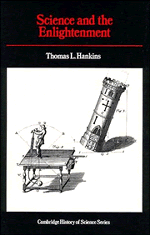II - Mathematics and the Exact Sciences
Published online by Cambridge University Press: 05 February 2015
Summary
The triumph of mathematics during the Enlightenment can be judged by the strangely conflicting testimony of those mathematicians who helped to create it. In a famous letter of September 21, 1781, Joseph-Louis Lagrange (1736–1813) wrote to his mentor Jean d'Alembert that he feared mathematics had reached its limit. He compared mathematics to a mine whose precious minerals had been pursued deeper and deeper into the earth to the limit of human accessibility. “Unless new seams of ore are discovered, it will be necessary to abandon it sooner or later.” Bernard Fontenelle had sounded the same warning as early as 1699, and Diderot used the exhaustion of mathematics as the best argument for turning to the more descriptive sciences of natural history, anatomy, chemistry, and experimental physics. He argued that like the pyramids of Egypt, the creations of mathematicians would stand for centuries but that like the pyramids, they could have little added to them and little practical use could be made of them. D'Alembert and the Marquis de Condorcet, on the other hand, urged mathematicians to keep the faith and trust to the future, even though the future for mathematics was uncertain.
The Meaning of Analysis
One wonders why the mathematicians of the eighteenth century, who had witnessed the spectacular success of their discipline during their lifetimes and who had seen mathematics become the prime exemplar of reasoned thought and the model against which the other sciences were to be judged, were so uncertain about its future.
- Type
- Chapter
- Information
- Science and the Enlightenment , pp. 17 - 45Publisher: Cambridge University PressPrint publication year: 1985



